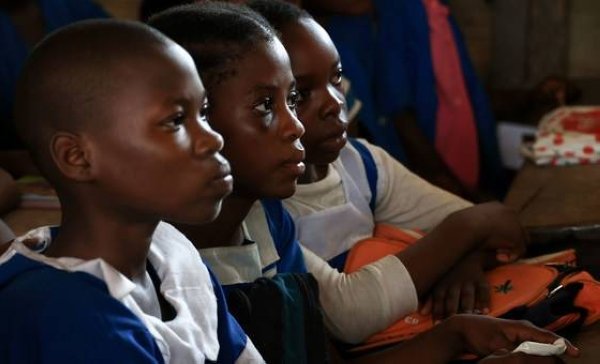There are no kids at the high school playground in Buea’s Bomaka area, only the occasional goat munching on overgrown grass.
Buea is the capital of Cameroon’s Southwest region, one of two regions engulfed in violence when anglophones launched a separatist campaign against the country’s French-speaking majority.
Since 2016, practically all of the schools in Bomaka have been closed. It only has one junior high school, which has seen its enrollment drop from roughly 600 to just 69 now.
“The crisis has killed the schools,” said Isaac Bissong, its headmaster. “Many pupils have left this neighbourhood to study elsewhere because they are afraid.”
Only eight kids were present in one classroom. The once-bustling passageways were deafeningly quiet.
Unlike other schools in the country, the Cameroon flag, which is green, red, and yellow, was not visible. “That might get us in a lot of trouble,” Bissong added.
The school is fewer than three kilometres (two miles) from Muea, a stronghold of the separatists and the site of numerous battles.
Bissong, while not being armed, offers whatever security he can for the school. He sits in a chair near the school entrance, keeping an eye out for possible trouble.
Anglophone separatists in the Southwest and Northwest routinely target schools that they claim are educating in French.
After being suspected of “collaborating” with the central administration in Yaounde, teachers and other state officials have been killed.
President Paul Biya, 88, has dominated the largely French-speaking country with an iron fist for the past 39 years.
Years of simmering resentment among the anglophone minority culminated in a proclamation of independence on October 1, 2017.
Armed separatists attacked security forces, resulting in a violent retaliation.
According to monitors, the spiral of violence has killed over 3,500 people and driven nearly 700,000 others to evacuate their homes. According to non-governmental organisations, both sides have committed civilian deaths and atrocities.
According to UNICEF, 850,000 children in English-speaking regions were out of school in 2019.
A dozen men stormed the Mother Francisca International Bilingual Academy in Kumba, in the Southwest area, in October 2020, and opened fire on students.
They slaughtered seven children aged nine to twelve. A dozen others were macheted or shot.
Four children and a teacher were slain by gunmen in the Southwest on November 24.
“Children are dying, and teachers too, for providing an education that these armed people do not want, believing it is not good for their region,” Jan Egeland, secretary general of the Norwegian Refugee Council, told AFP news agency during a visit to Buea.
“There’s a generation of children who are on the verge of becoming illiterate because they have not been to school.”
“When we send our children to school, we can receive threats,” said another parent, Manu Dao. “I am sad because their future is at stake.”
This year, one school in the southwest’s coastal town of Souza is hosting 596 displaced English-speaking youngsters out of a total of 1,087 students.
Pupils are frequently squeezed into 90-person classes.
“Many of them are in a state of shock,” said school official Joseph Mencheng.
“Many have seen people killed, their parents in some cases. Sometimes, in the middle of a lesson, they bring up some horror they have experienced.”
Stephanie, 12, is in a class with youngsters who are several years her junior.
“I left my village because there was a war and I couldn’t go to school for three years,” she explained.
Dipanda, nine years old, is in another busy classroom conversing with three students.
She was born in a little village in the Northwest. She is overjoyed to be back in school after courses were halted “due to the war.”
